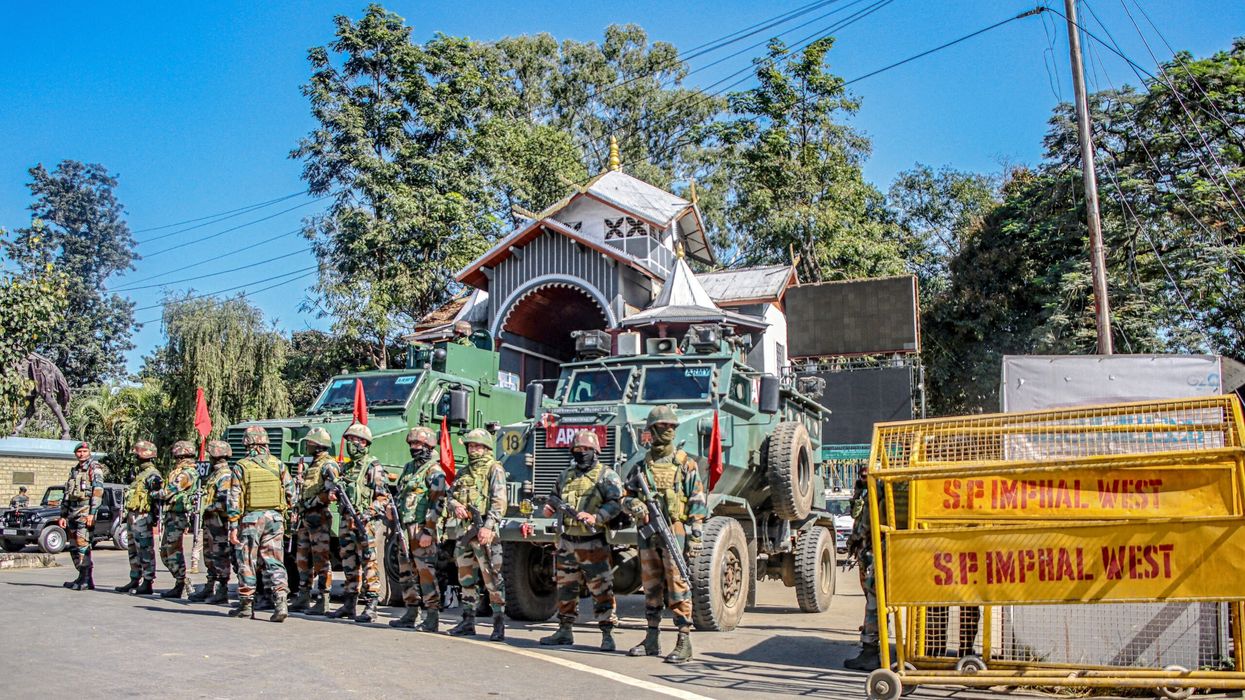INDIA will deploy an extra 5,000 paramilitary troops to quell unrest in Manipur, authorities said on Tuesday (19), a week after 16 people were killed in fresh clashes in the troubled state.
Manipur in India’s northeast has been rocked by periodic clashes for 18 months between the predominantly Hindu Meitei majority and the mainly Christian Kuki community, dividing the state into ethnic enclaves.
Ten Kuki militants were killed when they attempted to assault police last week, prompting the reprisal killing of six Meitei civilians, whose bodies were found in Jiribam district days later.
New Delhi has “ordered 50 additional companies of paramilitary forces to go to Manipur”, a government source in New Delhi with knowledge of the matter said on condition of anonymity, as they were not authorised to speak with media.
Each company of the Central Armed Police Forces (CAPF), a paramilitary unit overseen by the home ministry and tasked with ensuring internal security across the country, has 100 troops.
The Business Standard newspaper reported that the additional forces would be deployed in the state by the end of the week.
Police arrested 23 people last Sunday (17) for ransacking and setting fire to the homes of lawmakers and ministers, while hundreds demonstrated against recent violent killings in defiance of a curfew.
Manipur has been subject to periodic internet shutdowns and curfews since the violence began last year, disrupting daily life and communication..
Both were reimposed in the state capital Imphal last Saturday (16) after the discovery of the six bodies prompted violent protests by the Meitei community.
Since May 2023, inter-communal clashes between the Meitei and Kuki communities have resulted in at least 250 deaths and displaced 60,000 people in the region. As a result, Manipur has become divided into two ethnic enclaves: the Meitei controlled valley, and the Kuki-dominated hills, separated by a stretch of no-man’s land monitored by federal forces.
Tensions flared last week when a 31-year-old woman from the Kuki tribal community was burned alive. Kuki groups blamed Meitei militants for the act.
Citing a failure by state chief minister N Biren Singh to resolve the crisis, the National People’s Party, an ally of the ruling BJP with seven lawmakers in the 60-member state assembly, announced last Sunday its formal withdrawal of support from the state government.
The body of a woman, and that of a two-year-old child, believed to be members of a missing Meitei family, were last Sunday found in a river, after three other bodies, including two children, were recovered last Friday (15).
Identification is ongoing, but they are likely linked to the missing family, a district administration official from Jiribam said.
A Kuki man’s body was also found from the area on Sunday though authorities have yet to confirm cause of death, but said it “could be linked to the violence”.
India already has thousands of troops attempting to keep the peace in the conflict that has killed at least 200 people since it began 18 months ago.
The ethnic strife has displaced thousands of people in the state, which borders war-torn Myanmar, further worsening the crisis.
The Meitei have sought special benefits for more than a decade, but received a significant fillip in April last year after the Manipur High Court recommended the state government should consider the demand and set a firm deadline of mid-May
Meiteis account for half of Manipur’s population and extending limited affirmative action quotas to them would mean they would get a share of education and government jobs reserved for Kukis and Nagas.
Meiteis have traditionally lived in Manipur’s more prosperous valley region that makes up 10 per cent of the state’s area.
They have also had better access to employment and economic opportunities. Nagas and Kukis live in the poorly developed hill regions.
The imbalance in development that has favoured the valley over the hills has been a point of contention and rivalry between the ethnic groups.
The groups co-existed peacefully until unrelated events in 2023 exposed old faultlines.
Manipur shares a nearly 400- km (250-mile) border with Myanmar and the coup there in 2021 pushed thousands of refugees into the Indian state.
Kukis share ethnic lineage with Myanmar’s Chin tribe and Meiteis feared they would be outnumbered by the arrival of the refugees.




